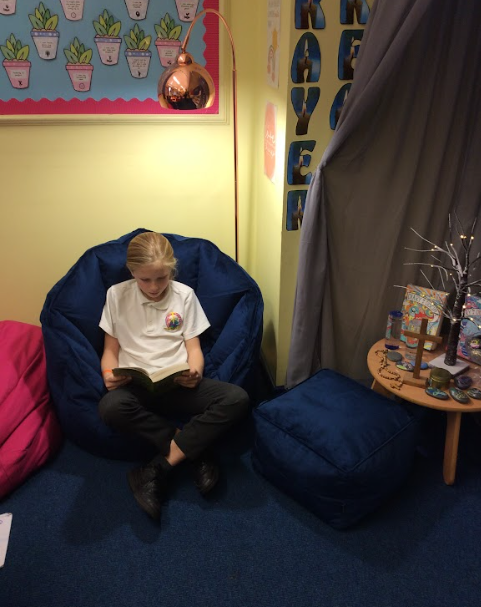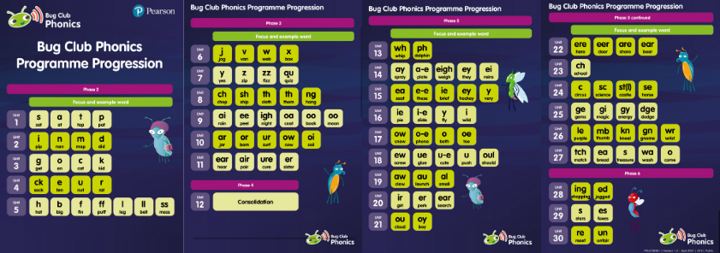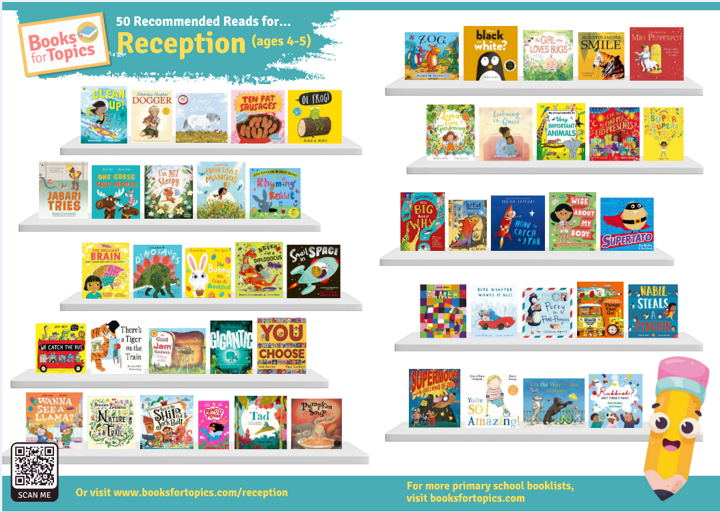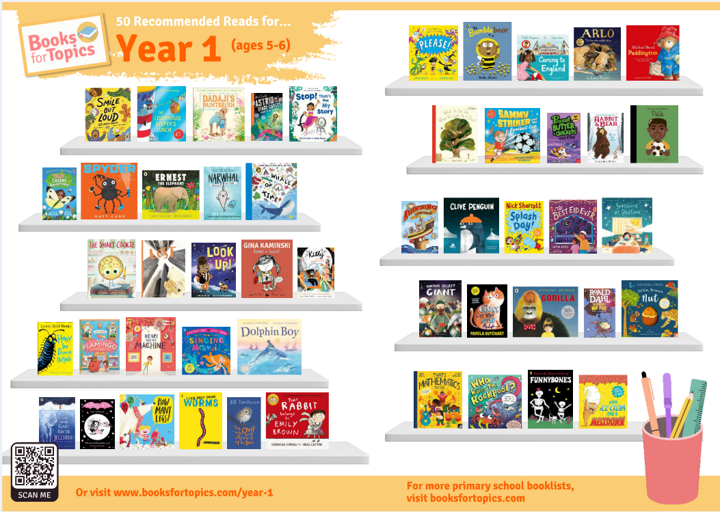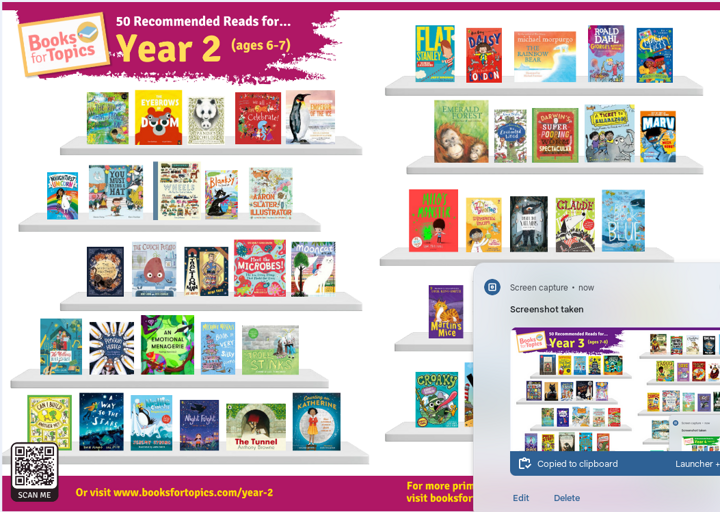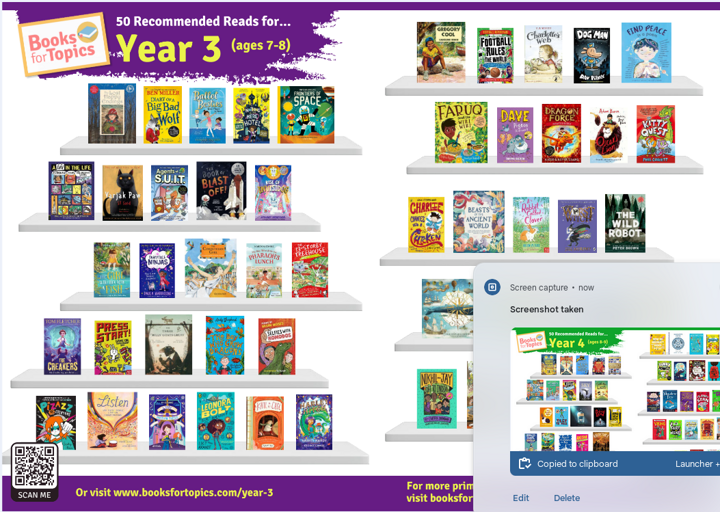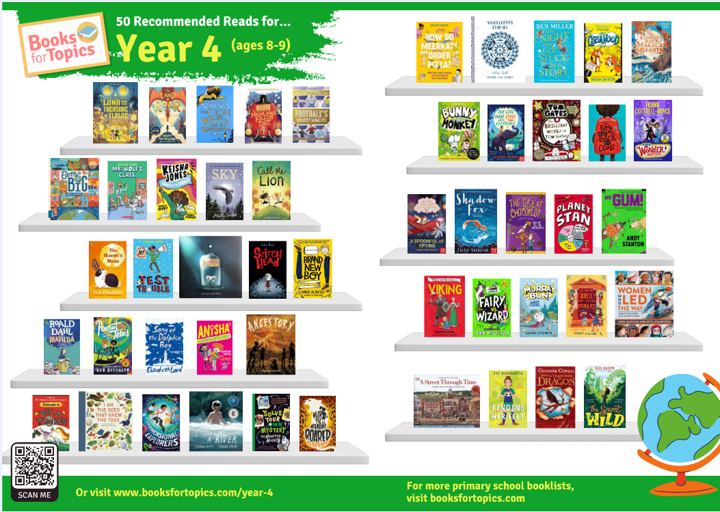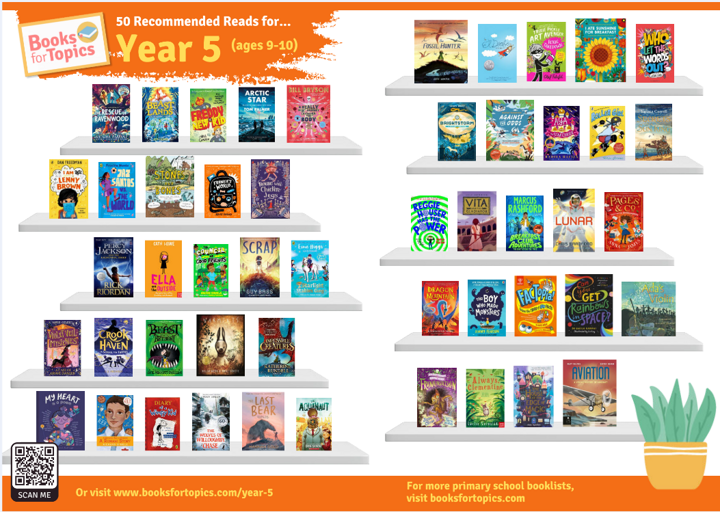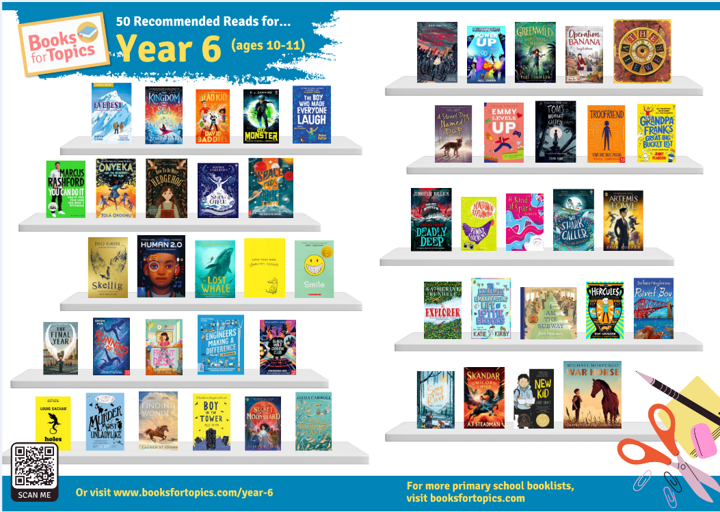At Newchurch St. Mary’s, we value reading and writing very highly. We believe it is a platform that allows children to express themselves within their learning. We endeavour to instil a love of books and reading for pleasure and children are given plenty of opportunities to read and write across the curriculum. At Newchurch St Mary’s Primary, it is our whole school ethos which puts reading – and particularly reading for pleasure – at the heart of what we do. To be a ‘reader’ is central to a child’s understanding of the school curriculum and is of vital importance in life. Fluent readers can access a full range of life experiences and can enjoy an amazing breadth of genres and writers. It is our moral obligation and passion to ensure that ALL children can access all areas of the curriculum and pursue topics which interest them.
Mrs Stevenson is our English subject leader and she is passionate about inspiring our children to develop a love of reading and writing.
John Loach, a parent of one of our children, is our link governor for the subject.
Reading intent.
At Newchurch St. Mary’s Primary Academy, it is our intent to provide our pupils with a high-quality, inspiring programme of education which will equip them with the knowledge, skills and motivation required to continue their studies and be extraordinary beyond Year 6.
Delivering a broad and balanced curriculum is one way we work towards achieving this. We intend to instil a love of reading in children from a young age through developing ‘reading for pleasure’ in our school culture. We intend to provide children with access to a wide-range of quality texts that they can enjoy. We strongly believe that the teaching of reading is integral to a child’s spiritual development, understanding and appreciation of the world around them; a window that allows our pupils to see beyond what they know, share in cultural experiences and develop the vocabulary they need to express themselves. Our reading curriculum strives to nurture a lifelong love of reading. We believe that all pupils should have the opportunity to be fluent, confident readers who successfully enjoy, comprehend and understand a wide range of texts and vocabulary. We want pupils to develop a love of reading, a good knowledge of a range of authors, and be able to understand more about the world in which they live through the knowledge they gain from texts.
Reading implementation.
Reading is a fundamental part of our whole curriculum - not just as part of English. We expose children to a language rich environment to support and enhance their reading ability.
To achieve this at Newchurch St. Mary's:
- We teach synthetic phonics in EYFS and Key Stage 1. The acquisition of reading is incorporated in the Bug Club Phonics Programme. Through this programme, the pupils are taught the essential skills needed for reading. Phonics is taught daily to all pupils in Foundation Stage, and Year 1 and its delivery is underpinned by continual assessment, allowing teachers to identify gaps in learning and use this to inform subsequent planning and intervention. The children have reading books which they are encouraged to read regularly.
- We offer daily adult supported guided reading sessions in the infant classroom and a carousel guided reading approach from Years 3-6. The primary purpose of the lessons is modelling skills, with assessment secondary. The teacher selects a high-quality text that will challenge all pupils within the group. These lessons are built around the teacher reading high-quality and challenging texts, which are dissected by the group through high-level questioning and discussion. Pupils work on activities that help them to understand new vocabulary and develop their comprehension of the text, ensuring that our pupils are able to make justified responses using evidence from the text. They are also taught to develop their ability to understand the author’s intent, connections and links to their own experiences.
-As part of guided reading sessions, the Juniors are reading mentors to the Infants. Each day a different group of children will go into the library to read with the younger children and share their books.
- Our English units include a reading phase which offers children opportunities to both respond and analyse the texts that they are exposed to. These novels are ambitious to expose children to a high level of literature, read by an adult.
-We offer opportunities for pupils to read through our foundation subjects. We choose texts that are rich in subject specific vocabulary to support reading whilst building on children’s knowledge of the subject.
-Assessment for reading is a priority. Our reading scheme is robust and the children are tested each half term to assess their reading level, which means that teachers can ensure pupils are reading the most appropriate books. All pupils are listened to a minimum of once a week. In both key stages, pupils identified as needing additional support with their reading will be listened to daily as far as is possible. This is to support them in meeting the expected standard in reading.
- To support a lifelong love of reading and a thirst for knowledge, we work hard to engage readers and support them to reach reading outcomes but also to promote positive mental wellbeing and reading for pleasure. Therefore, we work closely with Lancashire library services to make sure our library is regularly updated, we have newly published and requested books and teachers benefit from the loan boxes for classroom learning. We also participate in the Fantastic Book Awards for our older readers.
-We work hard to foster strong relationships with parents and carers to support the children immediately when they join our school. We endeavour to support parents and carers to have the confidence to build word reading and comprehension skills which will positively impact their children’s learning and development.
Reading Impact.
By the time pupils leave Newchurch St. Mary’s, we aspire that all pupils are able to leave Year 6 as:
- fluent readers who have a clear comprehension of shared texts we read and independently
- readers who have been carefully guided to choose books that both challenge and interest them
- competent spellers who can use their phonics skills to read new words confidently
- proficient writers who use grammar and punctuation adeptly and for a range of purposes
- pupils who have developed a lifelong love of reading.
Writing Intent.
We intend to give children the opportunities to develop writing skills through a well-structured writing curriculum so that they find success. At Newchurch St. Mary’s, we have developed and are delivering a varied and ambitious curriculum for writing. We aim to create efficient spellers, who can articulate their views and ideas clearly. is to enable all children in our school to be able to communicate their ideas, thoughts and feelings through their own written words.
Writing Implementation.
Spelling.
We use the Purple Mash spelling scheme at Newchurch St. Mary’s. The scheme of work fully covers the statutory requirements for spelling outlined in the National Curriculum. It incorporates engaging and interactive activities such as dictation quizzes and playing dice games. These spelling rules, including exceptions and misconceptions, are then applied to their writing across the curriculum.
Writing composition.
At St. Mary’s, pupils have opportunities to:
- have a wide variety of access to daily writing
- follow adults as they model good writing techniques
- create and use word banks and vocabulary walls
- use dictionaries to help with spelling
- be surrounded by positive writing environments with working walls, clear labels and attractive, bright displays
Children are taught the writing process explicitly and all new techniques build on previous learning through the use of the Key Learning documents from Lancashire. The writing phase is planned to model good writing to children, scaffold their skills to achieve the learning outcomes and then independently apply their knowledge to their writing throughout a variety of writing genres and purposes.
Writing impact.
Children at St. Mary’s understand what they must include within their writing to make it exciting and interesting to read. Writing produced by children reflects the learning objectives that have been set after being explicitly taught and modelled by teachers. The Lancashire planning units provide inspiring and engaging writing opportunities linked to quality texts for teachers to adapt to the children’s abilities, which in turn reduces workload.
In Foundation Stage and Key Stage 1, phonics sessions are taught daily and begin as soon as children join us at St. Mary’s. We follow the Bug Club Phonics scheme. Sessions are taught following a six phase programme and follow the same lesson structure each day. All phonics sessions follow the same four part teaching sequence:
- Revisit and review- previously taught sounds are revised
- Teach- new sounds or tricky words are taught
- Practice- reading and writing letters and words with the new sound in
- Apply- read and write captions and sentences with the new sound in
At the end of Year 1, children complete a phonics assessment which is made up of real and nonsense words. This assesses how well children can apply their knowledge of phonics to read words. You will be informed of your child’s result at the end of Year 1 and if your child has or has not met the benchmark grade. If your child doesn’t achieve the benchmark grade then further intensive support will be given in Year 2.
Intent.
We are committed to the delivery of excellence in the teaching of Phonics. The independent review of early reading conducted by Jim Rose confirmed that ‘high quality phonic work’ should be the prime means for teaching children how to read and spell words. The review also highlighted the importance of developing from the earliest stages children’s speaking and listening skills, ensuring that beginner readers are ready to get off to a good start in phonic work by the age of five. He suggests such work should be set within a broad and rich language curriculum which is at the forefront of planning.
The use of phonics is one of the many skills needed to be able to be a reader and writer. We teach high quality phonics to ensure the children have the best start possible in reading and writing. Learning phonics is the beginning of children’s body of knowledge, skills and understanding that are an essential part of learning to read. In order to read and understand texts children must learn to recognise/decode the words on the page. Good quality phonics teaching allows the child to be secure in the skills of word recognition and decoding which allows children to read fluently. This will result in children being able to read for pleasure and will allow them to move onto developing higher order reading for meaning skills. These phonic skills need to be taught systematically and involve a variety of multi-sensory resources for all learners.
The children are entitled to a Phonics curriculum which enables them to:
● gain a progressively deeper understanding of the phonetic structure of the English language.
● apply their phonic knowledge and skills to decode and segment unfamiliar words fluently and accurately.
● read rapidly to apply what they have learned across the whole curriculum.
● create fluent readers, confident speakers and willing writers.
● develop a life-long love of reading.
Implementation.
Here at Newchurch St. Mary’s, we follow the systematic approach laid out in the validated Bug Club Phonics Programme. In line with the School’s Policy and commitment to excellence in Phonics, EYFS and Year One and Two will learn phonics as a discrete lesson every day and will include phonics as part of teaching and learning throughout other curriculum areas on a daily basis.
In the infant class, phonics is taught in year groups: EYFS, Year One and Two however, groupings are flexible to allow for those children who need to revisit certain phases.In Year Two, phase five phonics is reinforced through English and other curriculum lessons (new spelling patterns). Interventions take place for those children who have been identified as in need of extra support to achieve their expected level. The structure of each lesson and the journey of Phonics across the week enables all aspects of the blending and segmenting of phonemes/graphemes.
Phonic skills will be reinforced in KS2 to support those children who do not yet have the phonic knowledge and skills they need. Phonics continues to be taught as new spelling patterns are introduced.
Impact.
We aim to develop each child so that they are able to read with fluency as well as develop a love of reading that will stay with our children all their lives. Through the explicit teaching of systematic phonics, we aim for children to be fluent readers at the end of Key Stage One, so that children can focus on developing their comprehension skills as they progress through Key Stage Two. Assessment of phonics and reading is purposeful and we foster relationships with parents so that contact can be made to share successes and also discuss concerns. Summative assessment are analysed to ensure progress in made for all children. We believe that being able to read is the most important skill children will learn during their early schooling and has far-reaching implications for lifelong confidence and well-being.
Phonics Progression.
We are a Voice 21 Oracy school.
We have become part of Voice 21 oracy movement. We have joined a network of schools who have made it their mission to transform teaching, pupils' learning and life chances through talk.
Why does oracy matter?
The world is fast becoming an amazing hub of technology to aid and enhance our access to the world around us. By teaching children oracy skills, they can effectively articulate their ideas and engage with their learning and each other in order to be successful.
As part of developing oracy, we have been creating 'talk opportunities' across the curriculum where children can engage in purposeful talk that builds their confidence and deepens their understanding of their own knowledge and the world around them.
Through carefully investing in implementing oracy, children at Newchurch St. Mary's will develop:
- speaking and active listening skills that are crucial for reading and writing
- vocabulary and articulation skills to empower children
- the ability to voice their feelings and communicate any issues with mental health or wellbeing
You can find out more about Voice 21 here
Voice 21 Documents
We love to nurture a love of reading from as soon as possible here at Newchurch St. Mary's! Here are some of the most highly recommended books for each year group to inspire you.
